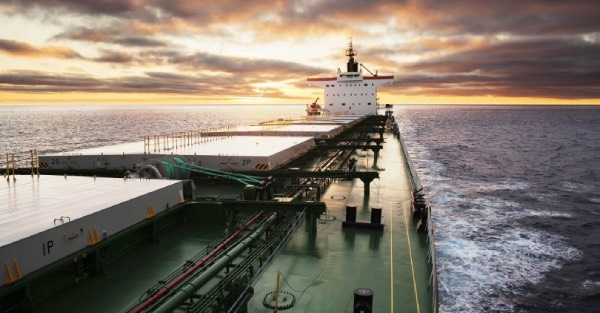For the past several years, Gard has been using AIS data to better understand our Members’ trading patterns and to provide targeted loss prevention material when and where it may be needed. So far, we have focused on liquefaction of solid bulk cargoes loaded in known hot spots and connected with subsequent tragedies or near misses, as well as areas which have been identified by materials experts as areas of concern. We chose this risk to focus on because while the claim frequency is low relative to other claim types, the stakes are high. A feature of liquefaction losses is the speed at which a ship and crew can be lost, and in many liquefaction cases there have been red flags that were missed, misunderstood, or dismissed
Clubs are aware that shipowners continue to encounter cargo misdeclarations, unreliable test certificates and cargo shift, or liquefaction discovered during or at the end of a voyage. Raw mineral ores, including but not limited to nickel ore, iron ore fines and bauxite, are of particular concern because of their composition, and are often mined in remote locations lacking advanced testing and regulatory oversight. Recently, growing global demand for resources is driving development of new mining activity. In some cases, this has translated to increased commercial pressure to ship low-grade material not suitable for export, and/or shippers or regulatory authorities and local surveyors lacking knowledge of the mandatory IMSBC testing and declaration obligations. In addition, global climate change is expected to increase the risk; wet seasons which contribute to the liquefaction process have become longer in certain high-risk areas, and storms, which can cause vessel instability and facilitate cargo failure, are increasing in frequency and intensity.
What is geofencing?
Gard uses AIS data to identify vessels insured with us for P&I liabilities that enter or exit a geographical port area known for liquefaction risk. The loss prevention team seeks out advice from materials experts, correspondents, shipowners, and claims handlers to identify known and emerging areas of concern. When a Member’s vessel enters the area, the claims handler provides loss prevention material, including any new updates or alerts, to the Member and follows up with any questions or assistance needed.
The follow up will be determined both by the Member’s needs and the risk profile of the area. In the Philippines and Indonesia, where there is a mandatory notification in place for the loading of nickel ore, Members will be asked to provide the required notification information if not already done. Members should note that the requirement is in place whether or not they are approached by the club, and ideally the notification should take place sufficiently in advance of loading to consider appropriate loss prevention measures. It should also be noted vessels entered on behalf of charterers are not geofenced; however, charterers remain subject to the mandatory notification requirement. Members may also be asked to provide information after loading about the compliance of cargo documents or risk mitigation measures taken.
In places where there is no mandatory notification, but where there has been recent information about misdeclaration, a reported liquefaction, or other critical concerns, the claims handler, in coordination with our loss prevention team, may approach the Member to discuss the information and resources they need to manage the risk.
In other areas, where there are no critical concerns other than general risk awareness, an area may be monitored for activity by Gard-entered ships, for the purpose of keeping Members in a regular trade aware of any new updates or refreshers or providing guidance to a Member who may be new to trading a specific cargo or area. An increase in activity may also be a good opportunity for Gard to seek further information from correspondents or experts, so we can have a better understanding of the situation and share this with our Members.
Why are we doing this?
Gard’s core purpose is to help Members and clients in the maritime industries to manage risk and its consequences. First and foremost, the goal of the geofencing initiative currently in place is to help Members avoid catastrophic loss of ships and crew caused by liquefaction incidents. We also hope to assist Members in managing the less severe but nonetheless difficult issues associated with this trade, such as recognizing red flags, awareness of the owner’s rights and obligations, and, importantly, knowing how to obtain assistance when required.
We believe that getting in touch with Members when and where they need it, is not only for passing on information we have – it is also an opportunity for a dialogue and mutual knowledge sharing.
Gard regularly consults local correspondents, experts, industry organizations and our own internal resources to strengthen our knowledge and pass it on to our membership. However, we never forget that our Members are an important source of insight, being well versed in the trades we are investigating and having competent and well-experienced crews as first-hand witnesses to cargo operations. We continue to emphasize that Members should have a low threshold for raising questions and concerns with the club, and we encourage Members to share information and experiences that may merit further investigation on a general basis. The safety and well-being of seafarers is of utmost importance, and managing this risk requires high vigilance and cooperation by all stakeholders.
As we develop this initiative, we hope that it will serve to develop our insight into targeted risks and identify emerging “hot spots”, as well as help us to improve the service we can offer to our membership. In the future the same principles can be used for other risks, such as ice, port information or other trending cargo issues.
We look forward to continuing cooperation and information sharing with our members to increase awareness, improve safety and prevent avoidable tragedy.
Source: Gard









































